第102章 APPENDIX IV(3)
The American temperament, on the contrary, being more experimental and independent, prefers to build anew upon its essentials. Where the Englishman covers the situation blanket-wise with his old institutions, the American prefers to construct new institutions on the necessities of the case. He objects strongly to being taken care of too completely. He objects strongly to losing the keen enjoyment of overcoming difficulties and enduring hardships. The Englishman by habit and training has no such objections. He likes to be taken care of, financially, personally, and everlastingly. That is his ideal of life. If he can be taken care of better by employing three hundred porters and packing eight tin trunks of personal effects-as I have seen it done-he will so employ and take. That is all right: he likes it.
But the American does not like it. A good deal of the fun for him is in going light, in matching himself against his environment.
It is no fun to him to carry his complete little civilization along with him, laboriously. If he must have cotton wool, let it be as little cotton wool as possible. He likes to be comfortable;but he likes to be comfortable with the minimum of means.
Striking just the proper balance somehow adds to his interest in the game. And how he DOES object to that ever-recurring thought-that he is such a helpless mollusc that it requires a small regiment to get him safely around the country!
Both means are perfectly legitimate, of course; and neither view is open to criticism. All either man is justified in saying is that he, personally, wouldn't get much fun out of doing it the other way. As a matter of fact, human nature generally goes beyond its justifications and is prone to criticise. The Englishman waxes a trifle caustic on the subject of "pigging it";and the American indulges in more than a bit of sarcasm on the subject of "being led about Africa like a dog on a string."By some such roundabout mental process as the above the American comes to the conclusion that he need not necessarily adopt the other fellow's method of playing this game. His own method needs modification, but it will do. He ventures to leave out the tables and easy chair, takes a camp stool and eats off a chop box. To the best of his belief his health does not suffer from this. He gets on with a camper's allowance of plate, cup and cutlery, and so cuts out a load and a half of assorted kitchen utensils and table ware. He even does without a tablecloth and napkins! He discards the lime juice and siphons, and purchases a canvas evaporation bag to cool the water. He fires one gunbearer, and undertakes the formidable physical feat of carrying one of his rifles himself. And, above all, he modifies that grub list. The purchase of waterproof bags gets rid of a lot of tin: the staple groceries do quite as well as London fancy stuff. Golden syrup takes the place of all the miscellaneous jams, marmalades and other sweets. The canned goods go by the board. He lays in a stock of dried fruit. At the end, he is possessed of a grub list but little different from that of his Rocky Mountain trips. Some few items he has cut down; and some he has substituted; but bulk and weight are the same. For his three months' trip he has four or five chop boxes all told.
And then suddenly he finds that thus he has made a reduction all along the line. Tent load, two men; grub and kitchen, five men;personal, one man; bed, one man; miscellaneous, one or two. There is now no need for headmen and askaris to handle this little lot.
Twenty more to carry food for the men-he is off with a quarter of the number of his first "modest safari."You who are sportsmen and are not going to Africa, as is the case with most, will perhaps read this, because we are always interested in how the other fellow does it. To the few who are intending an exploration of the dark continent this concentration of a year's experience may be valuable. Remember to sleep off the ground, not to starve yourself, to protect yourself from the sun, to let negroes do all hard work but marching and hunting. Do these things your own way, using your common-sense on how to get at it. You'll be all right.
That, I conceive, covers the case. The remainder of your equipment has to do with camp affairs, and merely needs listing.
The question here is not of the sort to get, but of what to take.
The tents, cooking affairs, etc., are well adapted to the country. In selecting your tent, however, you will do very well to pick out one whose veranda fly reaches fairly to the ground, instead of stopping halfway.
1 tent and ground sheet 1 folding cot and cork mattress, 1 pillow, 3 single blankets 1 combined folding bath and ashstand ("X" brand)1 camp stool 3 folding candle lanterns 1 gallon turpentine 3 lbs. alum 1 river rope Sail needles and twine 3 pangas (native tools for chopping and digging)Cook outfit (select these yourself, and cut out the extras)2 axes (small)
Plenty laundry soap Evaporation bag 2 pails 10 yards cotton cloth ("Mericani")These things, your food, your porters' outfits and what trade goods you may need are quite sufficient. You will have all you want, and not too much. If you take care of yourself, you ought to keep in good health. Your small outfit permits greater mobility than does that of the English cousin, infinitely less nuisance and expense. Furthermore, you feel that once more you are "next to things," instead of "being led about Africa like a dog on a string."